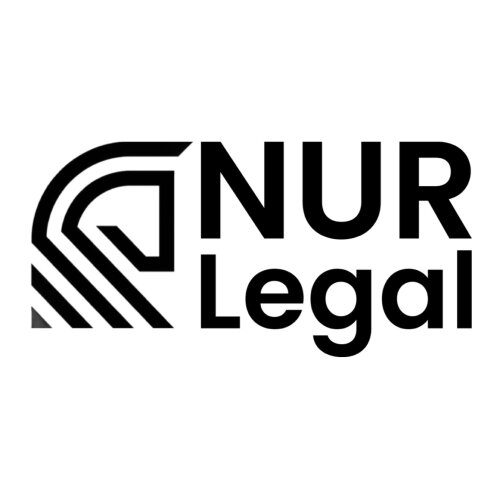Best Sanctions & Export Controls Lawyers in Estonia
Share your needs with us, get contacted by law firms.
Free. Takes 2 min.
Or refine your search by selecting a city:
List of the best lawyers in Estonia
About Sanctions & Export Controls Law in Estonia
Sanctions and export controls represent a vital area of law in Estonia, regulating the movement of goods, technologies, services, and finances in accordance with both national and international obligations. As a member of the European Union and a participant in various international treaties, Estonia is committed to enforcing sanctions adopted by the United Nations, the European Union, and its own government. Export controls are designed to prevent the proliferation of weapons, protect national security, and ensure public safety by regulating the export of sensitive dual-use items and military goods. Businesses and individuals operating in or with Estonia must ensure full compliance with these complex legal regimes to avoid significant legal and financial consequences.
Why You May Need a Lawyer
Legal assistance in the area of sanctions and export controls may be necessary for a variety of reasons. Businesses engaged in international trade, technology transfer, or financial transactions often encounter complicated regulations that can be difficult to interpret and implement. A lawyer can help ensure compliance, advise on licensing requirements, assess risk, and represent you in administrative or criminal proceedings if violations are alleged. Common scenarios include exporting dual-use goods, operating in embargoed regions, dealing with designated persons or entities, conducting due diligence, or seeking clarification from authorities. Engaging a lawyer early can help avoid penalties, disruptions to business, and reputational harm.
Local Laws Overview
Estonian sanctions and export controls are governed by national legislation, primarily the International Sanctions Act and relevant government regulations, as well as binding EU legal acts. Key aspects include:
- Implementation of all EU and UN sanctions, including financial, trade, and travel bans.
- Licensing system for the export and transit of controlled goods, including arms, dual-use items, technology, and related services.
- Obligation for businesses and financial institutions to screen customers and transactions against sanctions lists.
- Severe penalties for violations, including fines and potential criminal liability.
- Cooperation with EU authorities and international partners to enforce controls and prevent circumvention.
Authorities such as the Ministry of Foreign Affairs and the Tax and Customs Board are empowered to monitor, investigate, and enforce compliance. Regular updates and amendments are made to reflect new international obligations and emerging risks.
Frequently Asked Questions
What are international sanctions and who enforces them in Estonia?
International sanctions are restrictive measures such as trade bans, asset freezes, and travel restrictions imposed to influence actions of countries, entities, or individuals. In Estonia, sanctions are primarily enforced by the Ministry of Foreign Affairs, the Tax and Customs Board, and financial supervisory authorities.
How can I know if a product is subject to export controls?
Check the Estonian Strategic Goods List and corresponding EU regulations, particularly the EU Dual-Use Regulation. Consulting the Tax and Customs Board or a legal specialist is recommended for thorough screening.
Do I need a license to export goods from Estonia?
A license is required for the export, transit, or brokering of military and dual-use goods, as well as for certain software and technology transfers. The necessity depends on the item, destination, and end user.
What are the penalties for violating sanctions or export controls?
Penalties may include significant administrative fines, criminal liability, seizure of goods, and business restrictions. Individuals may also face imprisonment for serious offences.
Can Estonian individuals or companies do business with sanctioned entities?
Generally, no. Transactions with sanctioned persons, companies, or countries are prohibited unless specific exemptions apply or a license is granted by authorities.
How are sanctions lists updated in Estonia?
Estonia implements sanctions lists published by the European Union, United Nations, and its own government. Updates are communicated via official publications and government websites.
Are there any exceptions to export controls?
Limited exceptions exist, often for humanitarian, medical, or temporary use reasons. These require case-by-case assessment and usually approval from regulatory authorities.
How do I apply for an export or transit license in Estonia?
Export or transit licenses are administered by the Strategic Goods Commission under the Ministry of Foreign Affairs. Applications are submitted with detailed documentation about the goods, end use, and recipients.
Can personal data be affected by sanctions screening?
Yes, compliance procedures may involve processing personal data to verify whether individuals and entities are subject to sanctions.
Where can I get help if I am unsure about my compliance obligations?
You should consult a legal professional with expertise in sanctions and export controls. Additionally, official guidance from the Ministry of Foreign Affairs and the Tax and Customs Board can be helpful.
Additional Resources
If you need more information or support, the following resources and bodies may be helpful:
- Estonian Ministry of Foreign Affairs - Strategic Goods Commission for licensing and policy guidance
- Estonian Tax and Customs Board - enforcement and advice on customs and trade compliance
- Financial Supervision Authority - information for financial sector businesses and sanctions screening
- Chamber of Commerce and Industry - support services for businesses navigating export controls
- EU Sanctions Map - tool for checking the latest EU sanctions measures applicable in Estonia
Next Steps
If you believe you require legal advice or wish to ensure compliance with Estonian sanctions and export controls, start by gathering all relevant information about your business activities, products, and trading partners. Identify the specific transactions or jurisdictions of concern, and note any correspondence with authorities. Contact a local law firm or legal expert who specializes in international trade, sanctions, and export controls. Prompt legal consultation can help clarify your obligations, minimize risks, and facilitate any necessary applications or communications with authorities. Staying proactive and well-informed is crucial for operating safely and successfully in Estonia’s regulated environment.
Lawzana helps you find the best lawyers and law firms in Estonia through a curated and pre-screened list of qualified legal professionals. Our platform offers rankings and detailed profiles of attorneys and law firms, allowing you to compare based on practice areas, including Sanctions & Export Controls, experience, and client feedback.
Each profile includes a description of the firm's areas of practice, client reviews, team members and partners, year of establishment, spoken languages, office locations, contact information, social media presence, and any published articles or resources. Most firms on our platform speak English and are experienced in both local and international legal matters.
Get a quote from top-rated law firms in Estonia — quickly, securely, and without unnecessary hassle.
Disclaimer:
The information provided on this page is for general informational purposes only and does not constitute legal advice. While we strive to ensure the accuracy and relevance of the content, legal information may change over time, and interpretations of the law can vary. You should always consult with a qualified legal professional for advice specific to your situation.
We disclaim all liability for actions taken or not taken based on the content of this page. If you believe any information is incorrect or outdated, please contact us, and we will review and update it where appropriate.
Browse sanctions & export controls law firms by city in Estonia
Refine your search by selecting a city.













